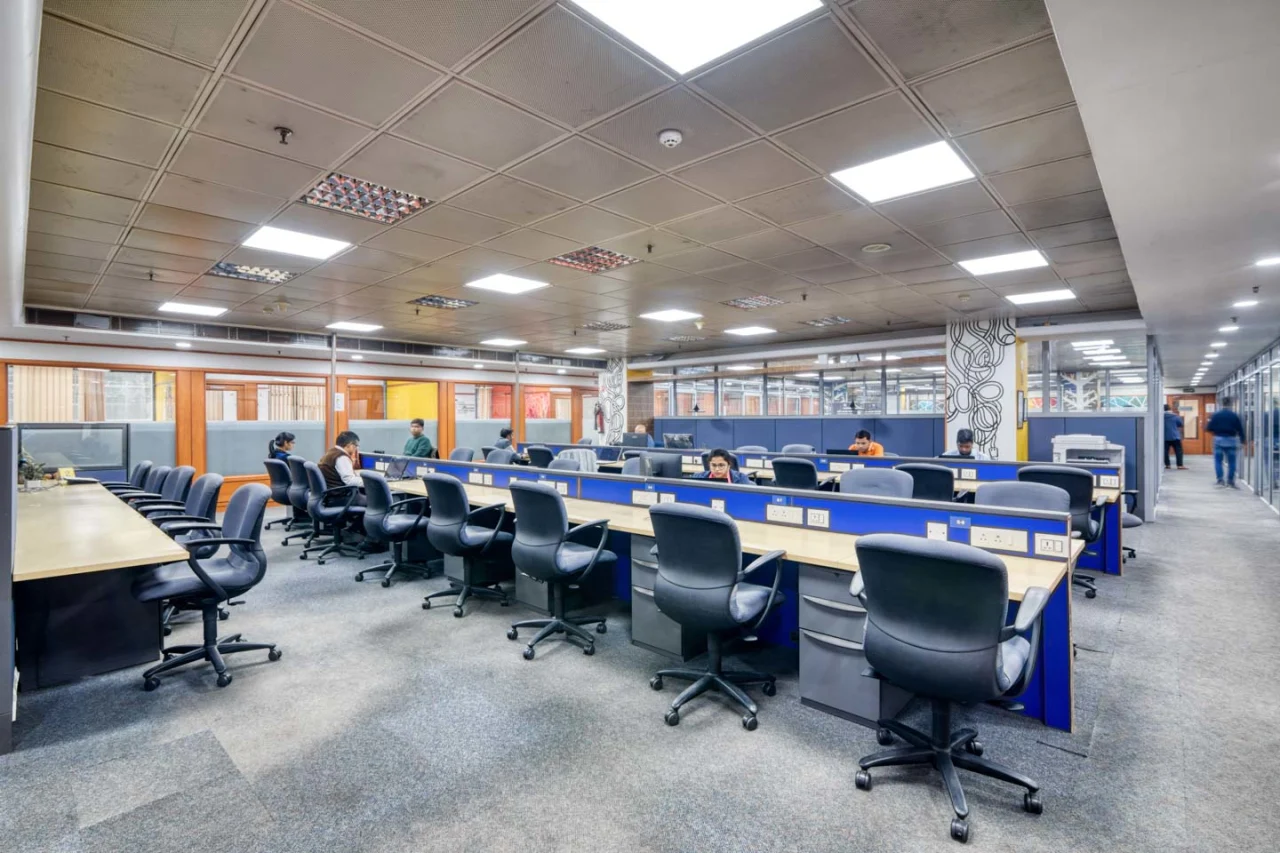United Kingdom Facility Management market size was USD 2.98 billion in 2023 and the market is projected to touch USD 3.59 billion by 2032, at a CAGR of 2.1% during the forecast period. The growing need for flexible office spaces is one of the main motivators in this situation. To accommodate employees who no longer have a fixed on-site workstation, many organizations are choosing to use co-working spaces, hot-desking arrangements, and satellite offices. This change has an immediate effect on FM since it makes it necessary to reorganize office spaces, implement desk reservation systems, and integrate technology to provide seamless remote work. The FM market is also being driven by the need for better remote work infrastructure. Facilities managers are making investments in ergonomic furniture, dependable high-speed internet, and video conferencing devices in order to accommodate remote workers. They need to make sure that employees who work remotely can access the same degree of comfort, security, and service as those who work in offices.
In the UK, workplace health programs and a heightened emphasis on employee satisfaction are propelling significant expansion in the facility management (FM) industry. Businesses are also learning that a supportive, loving work environment has a direct impact on employee productivity, satisfaction, and retention. For instance, Sodexo’s corporate services business, which is dedicated to optimizing workspace utilization, was awarded a five-year contract in January 2023 to offer integrated facilities management (FM) for the London offices of a major multinational bank. Modern key spaces are being implemented as part of the program, which aims to enhance worker satisfaction and increase output. As part of the £2 million annual contract, Sodexo offered a variety of services designed to raise employee satisfaction and engagement. These services include reception, cooking, cleaning, hospitality, guest services, technical support, and upkeep of the on-site fitness center. As a result, as businesses give employee well-being more importance, there is a growing need for FM services created specially to create pleasant work environments.
United Kingdom Facility Management report scope and segmentation.
United Kingdom Facility Management dynamics
The factors influencing the dynamics of the United Kingdom Facility Management (ESS) market include regulatory mandates, technological advancements, and increasing industrial safety awareness. It is occasionally necessary to outsource job management to various entities when working with a single facility management service provider. It also means hiring a different service provider for each task the company needs completed, such as cleaning, reception, and vending machines. Hiring specialized service providers has several advantages. Single-service providers improve operational effectiveness and provide adequate customer assistance, allowing customers to focus on their core business. Experts in task management will deliver significantly better results and work with much more efficiency. Employees will be able to focus on the most crucial facets of the company while also freeing up resources for non-core activities.
It is a growing need for facility management services that can support a building’s whole lifecycle, from design and construction to operation and maintenance, as the nation’s construction industry places more focus on sustainable building practices and lifecycle management. Sustainable and long-lasting building management can be achieved with the help of single facility management systems, which offer a comprehensive approach.
United Kingdom Facility Management drivers
Initiatives related to sustainability and regulatory compliance
Sustainability initiatives and regulatory compliance have a big impact on the UK facility management (FM) business. The UK government has implemented a number of laws and programs targeted at lowering carbon emissions, preserving resources, and encouraging sustainable practices as people grow more environmentally conscious. These laws, including the UK Green Building Council’s programs and the Climate Change Act, have a significant influence on how buildings are managed and maintained upwards. The drive for energy efficiency and lower carbon emissions is one important factor in this regard. Energy-efficient technologies, such LED lighting, smart HVAC systems, or renewable energy sources, are mandated for facility managers to implement. They also need to put recycling and trash reduction plans into action. Following these rules not only contributes to a smaller environmental impact but also saves money by lowering energy use and increasing operational effectiveness.
Innovations in Technology and Intelligent Building Solutions
The rapid advancement of technology and the growing use of smart building solutions are the second major factors propelling the facility management (FM) industry in the United Kingdom. The FM sector has undergone a technological revolution, becoming more data-driven, effective, and able to provide greater services to both residential and business premises. The Internet of Things (IoT) is one important driver in this area. Buildings are increasingly being outfitted with Internet of Things (IoT)-capable sensors and gadgets to keep an eye on things like humidity, temperature, energy use, and security. Facility managers are able to take preventative measures and make well-informed judgments by using the real-time data collected by these sensors. Predictive maintenance, for instance, can assist avoid equipment failures and save downtime and maintenance costs by using Internet of Things data.
- Restraints:
Lack of Workers and Skill Discrepancies
The main problem facing the facility management (FM) industry in the United Kingdom is the growing skills gap and scarcity of qualified personnel. A wide range of abilities are needed for facility management, including project management proficiency, technical understanding, and soft skills like customer service and communication. To satisfy the increasing demand, the FM industry is currently facing a shortage of skilled and qualified professionals. The aging workforce is one aspect that is contributing to this problem. A skills and expertise vacuum that is challenging to fill is being left by the fast retirement of an experienced FM personnel. Though they take time, strategies for transferring knowledge from retiring professionals to the younger workforce are essential. The absence of thorough educational and training programs specifically focused on facility management is another problem. FM-related courses are offered by a few colleges and other institutions, but they are not as widespread as programs for other industries. As a result, there are few new talents entering the industry.
Growing Operating Expenses and Financial Restraints
A significant obstacle for the Facility Management (FM) industry in the United Kingdom is the ongoing demand to manage increasing operational expenses while navigating financial limitations. Numerous services, such as upkeep, cleaning, security, and energy management are included in facility management; each has a corresponding price. For businesses and service providers to remain financially stable, effective cost management is crucial. The growing expense of utilities and energy is a significant factor in the problem. Growing energy costs have an immediate effect on facility operations, increasing the cost of powering, heating, and cooling facilities. Energy efficiency and consumption reduction are constant goals for FM professionals, but they frequently necessitate large upfront expenditures in infrastructure and technology.
- Opportunities:
Growth in the Commercial Real Estate Sector
The commercial real estate industry in the United Kingdom is growing as a result of factors like economic expansion, urbanization, and the rising demand from businesses for modern office spaces and facilities. This growth offers an exciting prospect for the facility management market because new commercial buildings require a wide range of facility management services, including maintenance, hygiene, security, and space management. Additionally, by leveraging on the demand for responsive & agile services, property management companies can profit from the growing desire for flexible working environments. The demand for skilled facility management is increased by the rise of co-working spaces, a mixed-use structure, and retail stores. Businesses are best positioned to take advantage of this market potential if they can offer complete and comprehensive facility management services to meet the wide range of demands of the commercial real estate sector.
- Segment Overview
By Offering, The United Kingdom Facility Management market is segmented into Hard FM, and Soft FM. In 2023, the Hard section became the dominant segment. Within the Facility Management (FM) market in the United Kingdom, the hard service segment is concentrated on the structural and physical components of facility maintenance. It includes all necessary services pertaining to the systems, equipment, and infrastructure of buildings. HVAC (heating, ventilation, and air conditioning), electrical circuits, plumbing, and fire safety systems are among the mechanical and electrical systems that fall under the purview of Hard Services. There is an increasing tendency toward predictive and preventative maintenance in the UK FM sector. In order to reduce costs and increase dependability, facility managers are using technology and data analytics to predict equipment breakdowns and optimize the operation of mechanical and electrical systems.
The care of a building’s physical structure, which includes its doors, windows, roof, and walls, is referred to as building fabric maintenance. This service guarantees the building envelope’s continued security and weather proofness. This section has been impacted by the emphasis on energy efficiency and sustainability. To cut down on heat loss and boost insulation, facility managers are implementing energy-efficient building materials as well as conducting energy audits. In order to safeguard buildings and its residents, safety and entry control services include the installation and upkeep of alarm systems, CCTV monitoring, access control technologies, and security systems. One popular trend is the integration of smart security systems. To improve security and proactively address threats, facility managers are putting advanced access control systems, Al-driven surveillance, & remote monitoring into place.
United Kingdom Facility Management Overview by Region
In 2023, Greater London became the dominant region. Greater London, the nation’s capital and one of the biggest cities, makes up a sizeable and vibrant portion of the Facility Management (FM) sector in the United Kingdom. A wide variety of facilities may be found in Greater London, such as shopping malls, residential complexes, healthcare facilities, government buildings, and educational facilities. This diversity of property kinds supports a strong and distinctive FM market. Greater London’s tech-savvy population offers a chance to incorporate smart building technologies. Facilities managers may improve building efficiency, occupant experience, and security by utilizing loT, data analytics, and Al. The economy of Greater London is varied and includes a range of businesses, such as tourism, healthcare, technology, and finance. Because of this diversity, facility managers can focus on catering to particular market niches and customizing their offerings to meet the demands of particular market.
In the region of London, sustainability is becoming a more important consideration in building and renovating facilities. Renewable energy sources, energy-efficient designs, and green building materials are essential to both new construction and repair projects. The FM market in the United Kingdom’s Greater London region is distinguished by its distinct obstacles, exorbitant expenses, and intricate regulations. The trends in this area show how facility management is changing in terms of sustainability, wellbeing, and the nature of work. For Greater London’s facility managers and service providers to prosper in this changing market, they must adjust to these circumstances.
United Kingdom Facility Management market competitive landscape
Leading companies such as CBRE Group Inc., Mitie Group PLC, EMCOR Facilities Services Inc., Atlas FM Ltd, Andron Facilities Management, ISS UK, JLL Limited, Serco Group PLC, Kier Group PLC, Atalian Servest, Sodexo Facilities Management Services, Compass Group, Engie Facility Management (Engie SA), Vinci Facilities Limited, and Amey PLC. The facility management industry in the United Kingdom is extremely fragmented due to its high level of competition and the existence of several competitors of varying sizes. Many mergers, acquisitions, and joint ventures are anticipated in this sector as businesses continue to make strategic investments to counterbalance the current slowdowns they are facing.
Scope of United Kingdom Facility Management report
United Kingdom Facility Management report segmentation
In case you don’t find what, you are looking for, please get in touch with our custom research team at
Latest Report
https://organicmarketresearch.com/press-release/saudi-arabia-influenza-vaccine-market
https://organicmarketresearch.com/press-release/saudi-arabia-smart-meters-market
https://organicmarketresearch.com/press-release/saudi-arabia-in-vitro-diagnostics-market
https://organicmarketresearch.com/press-release/uae-green-energy-market
Contact Us
+91 9319642100
sales@organicmarketresearch.com
Noida One Tower Sec 62 Noida 201301
Website: https://organicmarketresearch.com













